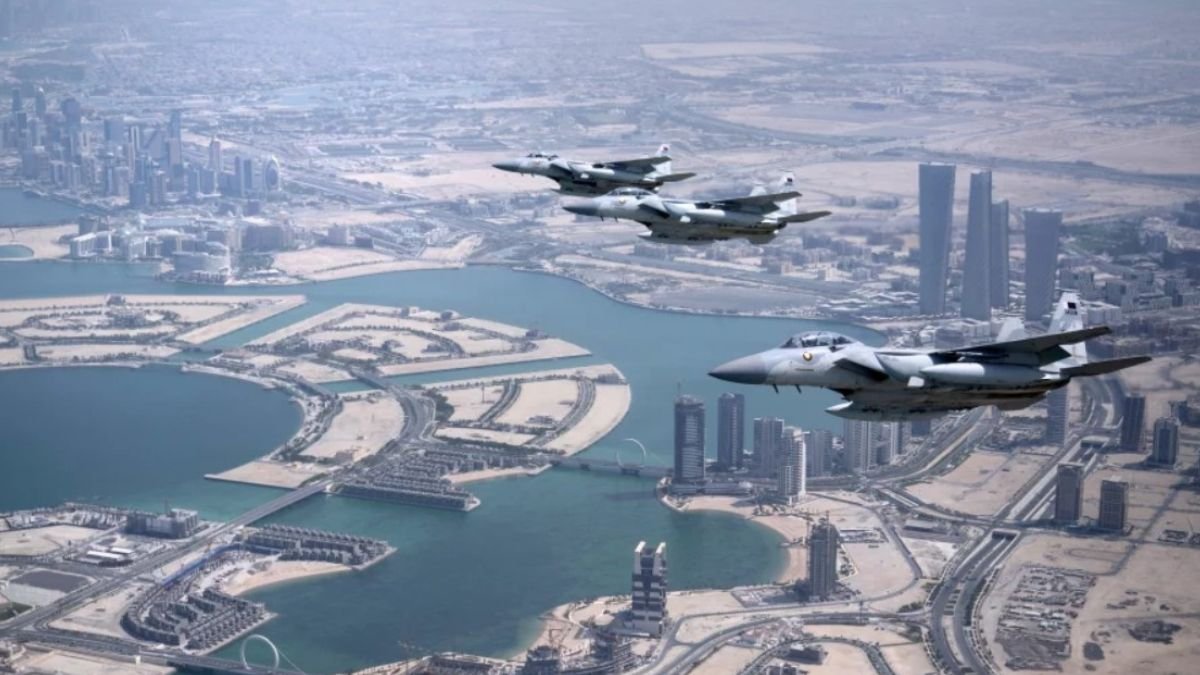A controversial proposal under consideration by Donald Trump’s circle has drawn sharp criticism from defense experts and lawmakers alike: the idea of accepting a used Boeing 747 from Qatar’s royal family as a temporary replacement for Air Force One.
Though pitched as a cost-saving gesture, the move is stirring national security concerns, with critics warning that such a gift could open the door to surveillance vulnerabilities, diplomatic entanglements, and logistical nightmares.
Trump Defends Plan as “Transparent” and Cost-Free
Former President Trump addressed backlash via Truth Social, characterizing the deal as a patriotic upgrade.
“The Defense Department is getting a gift, free of charge, of a 747 aircraft to replace the 40-year-old Air Force One, temporarily, in a very public and transparent transaction,” he posted.
But critics argue that the realities behind such a transaction are far more complicated—and far more dangerous.
Expert: Jet Conversion a “Fantasy”
Aviation expert Richard Aboulafia, managing director at AeroDynamic Advisory, dismissed the proposal as unrealistic.
“This is a fantasy. The systems required to transform a commercial jet into a secure presidential aircraft are complex, expensive, and time-consuming,” Aboulafia told NPR.
He emphasized that Air Force One is no ordinary aircraft. Outfitted with state-of-the-art communication systems and hardened for extreme crises—including nuclear war scenarios—the current fleet offers protections and capabilities no commercial jetliner can match.
Why the Boeing Jet Isn’t Just Another Plane
The distinction between a traditional Boeing 747 and Air Force One lies in its mission-specific enhancements:
- Secure Global Communications: Enables real-time conversations with U.S. military command worldwide
- Advanced Defense Systems: Built to survive hostile attacks and electromagnetic pulses
- Mission-Specific Upgrades: Includes secure conference rooms, medical suites, and classified technology
Even with a donated aircraft, transforming it into a functional Air Force One clone would involve years of retrofitting and intense security vetting.
Boeing Stock in Focus Amid Air Force One Program Delays
The proposed Qatari jet emerges as Boeing’s efforts to build the next-generation Air Force One, known as the VC-25B face mounting delays. Initially slated for earlier delivery, the program now targets 2029 or beyond.
This prolonged timeline has placed Boeing stock under scrutiny. Although the company operates under a fixed-price contract, meaning it absorbs any cost overruns, delays could affect investor confidence.
Despite these concerns, analysts suggest continuing with the existing VC-25B program is still the most secure and cost-effective path forward. Some believe that easing a few military-grade requirements could allow Boeing to deliver the aircraft within two years—a move that could provide a much-needed boost for Boeing’s stock performance.
National Security Risks: “You’d Have to Rip It Apart”
Accepting a foreign-owned aircraft presents serious espionage risks. Aboulafia warned that the presence of undetectable surveillance devices cannot be ruled out, even with rigorous inspections.
“To guarantee a clean slate, you’d have to tear the plane down to every wire and rebuild it from scratch. Even then, certainty is elusive,” he said.
He stressed that the U.S. must assume worst-case scenarios when it comes to presidential security. The presence of embedded technology, no matter how small or well-hidden, could compromise national interests.
No Clear Upside, Say Experts
For many observers, the question isn’t just about technical feasibility—it’s about motive. Aboulafia expressed confusion over the Trump camp’s enthusiasm for the Qatari jet.
“There’s no benefit here. The current Air Force One already serves its purpose, and the replacement program is well underway,” he noted.
Speculation lingers that the former president could be considering long-term personal use of the jet, though such a scenario would likely conflict with federal laws and involve removing any sensitive systems.
Lawmakers and Ethics Experts Raise Concerns
Beyond the technical issues, ethics watchdogs and lawmakers across party lines are questioning the optics and implications of accepting a gift from a foreign government.
Key concerns include:
- Foreign Influence: Could Qatar gain political leverage through the donation?
- Lack of Oversight: Who authorizes such an acquisition and under what conditions?
- Transparency: Despite Trump’s claims, the behind-the-scenes dealings remain murky
These unanswered questions have prompted calls for an official review, with some legislators urging the Pentagon and Congress to block any such transaction.
Boeing’s Role Moving Forward
As scrutiny around the proposed gift intensifies, Boeing remains central to the debate. The company continues working on the VC-25B, navigating the complex requirements necessary for a presidential aircraft.
Investors monitoring Boeing stock are likely to see continued volatility as political controversies and production delays unfold. However, analysts maintain that the company’s long-term prospects are strong, especially as demand for government and defense contracts remains robust.
For now, Boeing’s focus remains on fulfilling its existing contract, which could help stabilize Boeing stock and reinforce its role as a trusted U.S. defense partner.
